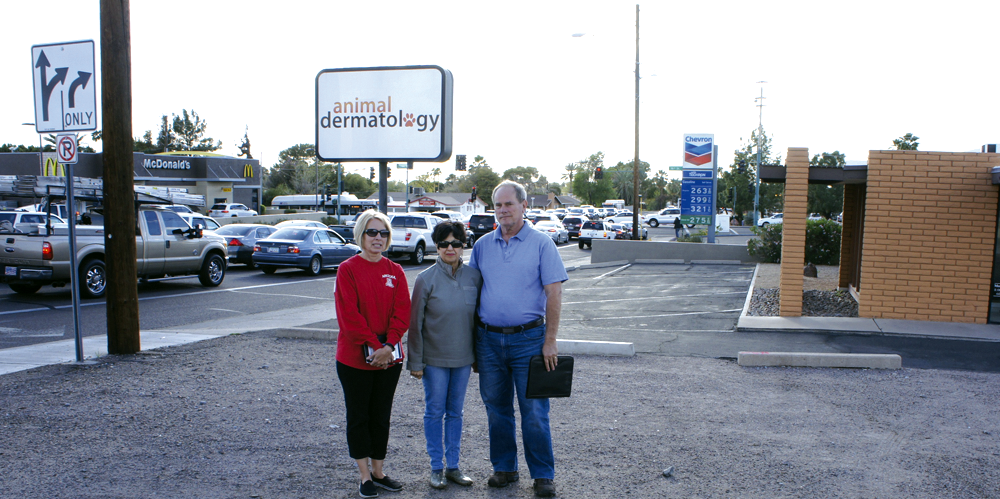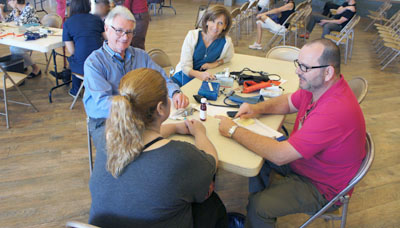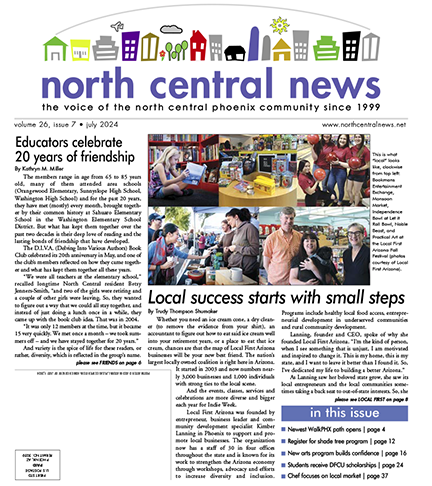A medical marijuana dispensary has been approved for the building that formerly housed an animal dermatology clinic, at 1616 E. Glendale Ave.
In a move that surprised many, the Phoenix Board of Adjustment on April 5 overturned a previous Zoning Administrator’s denial of a use permit and two variances that would have allowed the dispensary to open. With the Board of Adjustment’s 5-1 vote to reverse the Dec. 14, 2017 denial, the applicants, Mitchell Song and 64 Alpha LLC, can now begin the work of converting the building to accommodate its new purpose.
According to one of the partners, Randy Smith, the dispensary will be called Sunday Goods (www.SundayGoods.com), and while no opening date has been announced, updates will be posted to the website.
Sunday Goods is an established medical marijuana grower, currently supplying to 34 dispensaries throughout the state, including several in Phoenix. Sunday Goods also offers delivery service to those with an Arizona MMJ Card and Arizona state ID/driver’s license. Zip codes currently being delivered to in the North Central area include 85012, 85013, 85016, and 85021; the website says that more ZIP codes will be added in the future.
At the April 5 hearing, the applicants were represented by well-known Phoenix zoning attorney Larry Lazarus, who argued that the property does have special circumstances and “hardships” that were not of the owner’s making. For example, in 1989 the city of Phoenix used its eminent domain authority to condemn part of the property in order to widen Glendale Avenue. As a result, the property lost three parking spaces and the frontage was reduced to just 70 feet. The overall property was reduced to 8,059 square feet.
Lazarus argued that because of the size of the building (less that 2,000 square feet) and limited parking, there weren’t many commercial businesses that could functionally operate at this site, and that the owner, Mitchell Song, had received “no serious offers” to purchase the property in the last five year.
Lazarus referred to a case that made it all the way to the Arizona Supreme Court in August of 2017, involving a strip club that was being converted into a pawnshop at the southwest corner of 32nd Street and McDowell Road. Similarly, much of that property was “taken” by the city during a road-widening project, limiting parking and frontage and requiring several variances in order for Central Pawn to operate at that site. The court agreed that the special circumstances and hardships were imposed on the property by outside forces—in this case, the city of Phoenix—and so some accommodation needed to be made for that business’s “preservation and enjoyment of substantial property rights.”
Several members of the Phoenix Board of Adjustment agreed that the precedent had been set with the Central Pawn case, and that there were enough similarities to the medical marijuana dispensary proposal to warrant the approval of the requested use permit and variances.
The Board of Adjustment added some stipulations in its ruling, including: a 1-year deadline to apply and pay for building permits; submitting a copy of the required security plan to the city’s Planning and Development Department; notifying the area’s Police Precinct Commander, in writing, of the establishment of the medical marijuana facility; and installing an odor control system for the building within 180 days of the April 5 ruling.
“Since we are not packaging, cultivating or manufacturing on site, odor emissions are not a concern we have for a medical marijuana store,” Smith said, adding, “However, we intend to follow the city of Phoenix requirements and install an odor control system that meets and exceeds guidelines set forth.”
In addition, the owners must obtain a certificate for medical marijuana use from the Arizona Department of Health Services, or approval to operate. If no certificate or approval to operate is received within 180 days of the ruling, the Zoning Administrator is directed to schedule a revocation hearing for the use permit.
“We don’t anticipate any issues with obtaining all necessary government approvals,” Smith said.
The neighborhood group that came out in strong opposition to the use permit and variance requests has 30 days from the date of the ruling to appeal the decision to the Arizona Superior Court. As of press time, a source in that group said they were still “looking at options.” However, the group has only until on our about May 5 to file their appeal.










































